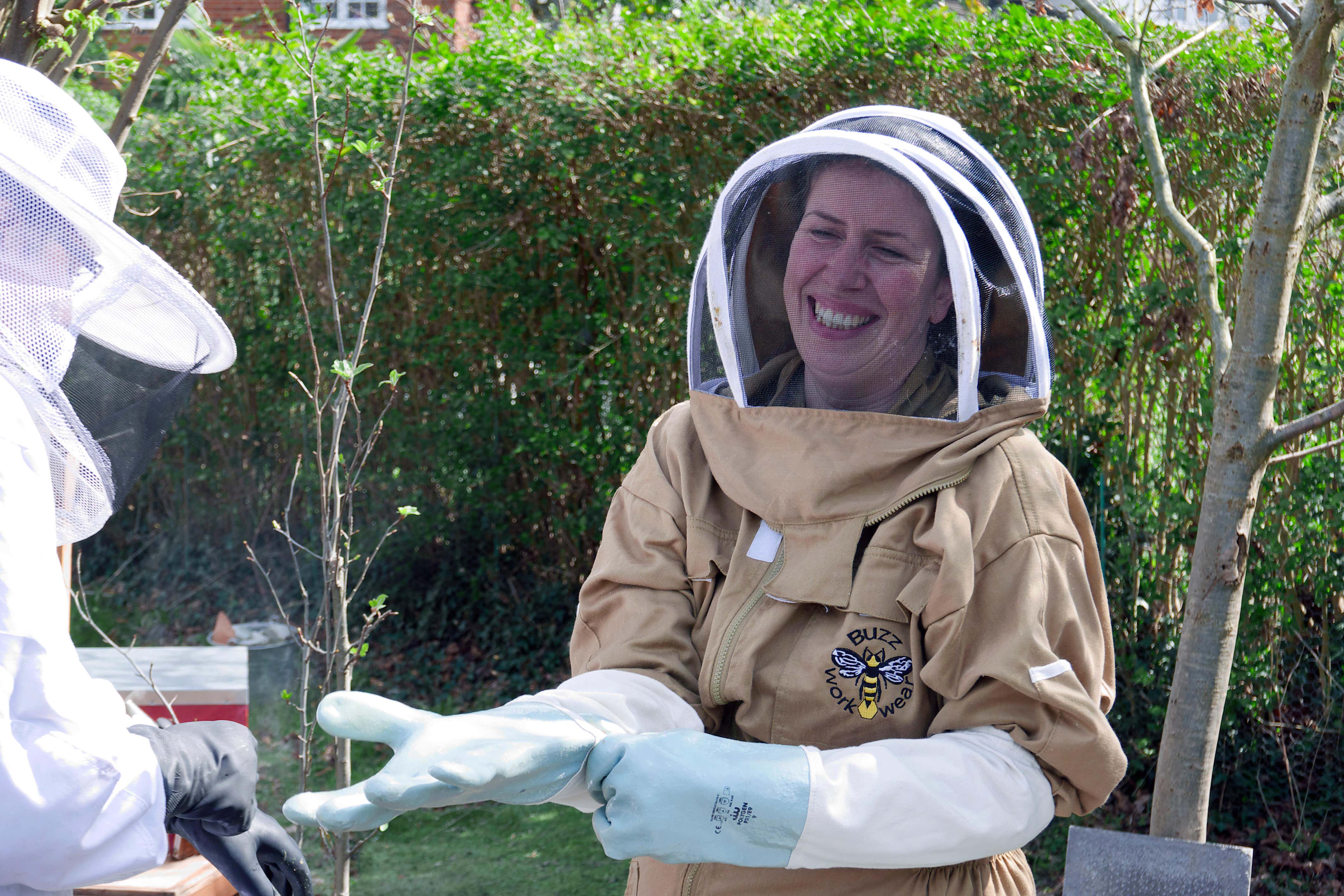Beekeeping has gone viral – but how easy is it?
#Beekeeping has gained 1.9 billion views on TikTok. But, how can you jump on the trend? Imy Brighty-Potts finds out.

With urbanites setting up hives on their balconies, honey being made up and down the country and a whopping 1.9 billion TikTok views for #beekeeping, this summer might just be the busiest time for starting a buzzy new hobby.
“Urban beekeeping offers people a rewarding chance to connect with nature, and contribute to conserving our pollinator pals in urban settings,” says Amanda John, a professional beekeeper who works closely with Rowse Honey.
“This form of beekeeping has become increasingly popular, as the importance of protecting our bees becomes more prevalent.”
But, how do you get started?
Find a place to put them
Retiree Caroline Ingham, 61, from Holmfirth, Yorkshire, has been beekeeping for five years.
“I used to be a volunteer at our local high school on gardening projects. I was offered a short course and we got bees in the school, but it didn’t work out, so I acquired a beehive. They are in my garden and three other ladies come and help me,” she explains.
But, if you don’t have a garden, Ingham says you can put them on roofs and balconies, as long as you seek the right permissions and tell your neighbours.
Get kitted out
Many may be put off by the cost and fear of getting stung.
“People generally have a fear of bees, I did when I started,” says Ingham. “Looking at frames of thousands of bees was a bit frightening, but it’s something you get used to, and it becomes so inspirational and enjoyable.
“You need a proper bee suit – full length with gloves and protective footwear, even wellies,” she continues. “It can be expensive, depending on what lengths you go to and the equipment you acquire. If you join an association, you can find stuff relatively cheaply – and it doesn’t have to be new.
“If you were to shop online from new, it would cost about £500. More carefully, it could cost £250.”
But, what about the actual hives?
“Basic equipment would be a hive, and here in the UK, we tend to go for a national type, with frames and a foundation, with a small number of tools for lifting the frames,” Ingham explains.
Associations may be able to help you source items.
“There are British beekeeping associations for each district, I am part of the Huddersfield Beekeeping Association. As a member, you get insurance if there is a problem with the hive. Joining the association is around £35 annually.”
Finding bees
So, you have the gear, but where do you actually get the bees from? Well, associations may be able to help you find someone selling a hive, or someone looking to redirect a swarm.
“This year has been a big year for swarming, but you can pre-empt them (a swarm is a queen leaving the hive and taking some of the bees with her). If you witness the bees making queen cells protruding on the foundation, it will indicate they are not happy, so they are making a new one,” Ingham explains.
What should you be worried about?
“Winter is a bad time to get the bees through – it depends so much on the weather. They don’t come out of the hive until it is about 13 degrees, and in the winter, you need to insulate them,” says Ingham. “You also have to do treatments for insects they can be prone to, and making sure you do regular inspections of your hives is really important.”
“When getting started in urban beekeeping, it is essential to understand the safety and basic knowledge of beekeeping,” says John.
“If possible, this means attending beekeeping workshops – which can be booked online – and connecting with local beekeepers to learn more about bee behaviour, hive management and safety protocols. Understanding these basics is the key to success,” she continues.
While it isn’t easy, it is rewarding, for both you and the planet.
Bookmark popover
Removed from bookmarks